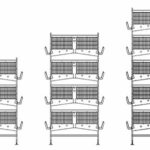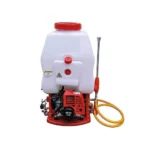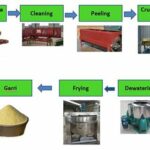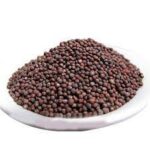Are you considering venturing into the lucrative world of pig farming?
Nigeria has a vibrant and growing pig farming industry, fueled by a high demand for pork and its by-products. The large population and cultural preferences in the country contribute to a stable and profitable market for pig farmers.
Whether you’re a novice farmer or an experienced agricultural entrepreneur, you will gain valuable insights and practical tips to start and optimize your operations for success in the Nigerian pig farming market.
In this blog post, we will cover various aspects, including planning your farm, selecting suitable pig breeds, implementing effective management programs, and selling your pigs.
- Planning Your Pig Farm
- Selecting Suitable Pig Breeds and Stocking Your Farm
- Establishing Feed and Nutrition Programs
- Implementing Effective Pig Health Management
- Marketing and Selling Your Pigs
Planning Your Pig Farm
Before starting a pig farming business, it is crucial to plan and identify your target market. Evaluate local demand, such as restaurants, hotels, wholesalers, and direct consumers, to determine the size and potential of your customer base. It is also important to study the strategies of successful pig farmers, explore market trends, and adapt your business plan accordingly to gain a competitive edge. A well-crafted business plan is the foundation of your pig farming business. It should include your objectives, marketing strategies, financial projections, operational plans, and contingency measures. Seek expert advice, engage with mentors, and consult agricultural professionals to refine your plan.
Other important criteria in planning your pig farm include;
- Securing Financing and Resources is a crucial step in planning your pig farming business. You need to determine the capital required for land acquisition, infrastructure development, and purchasing livestock, feed, and other essentials. Explore various funding options such as loans, grants, and partnerships to ensure you have the necessary financial resources. Efficient resource management will be key to maintaining financial sustainability throughout your pig farming journey.
- Acquiring Land and Infrastructure for your pig farm is another vital aspect. Selecting an appropriate location is essential, considering factors such as access to transportation, markets, and veterinary services. Proximity to feed suppliers and availability of utilities like water and electricity are also important considerations. Evaluate your land requirements and size considerations based on your planned herd size and future expansion plans. Ensure you have sufficient space for pig housing, feeding areas, waste management, and potential future developments. Constructing suitable pig housing and structures is crucial for providing comfortable and hygienic conditions for your pigs. Consider climate-appropriate designs, proper ventilation, and adequate space per pig. Install sturdy fencing to secure the farm and protect the pigs from predators.
- Proper waste management systems are essential for maintaining a clean and healthy environment on your pig farm. Implement effective waste management practices to ensure the proper disposal of pig waste, reducing environmental pollution and safeguarding the health of your pigs.
By carefully planning and executing these initial steps, you will establish a solid foundation for your pig farming business. It will set the stage for successful operations, ensuring the well-being of your pigs and the long-term profitability of your venture.
Selecting Suitable Pig Breeds and Stocking Your Farm
It is essential to evaluate popular Pig Breeds suitable for the Nigerian climate and make your selection based on market demand and your farming objectives. Popular breeds include the Large White, Landrace, and Duroc, known for their fast growth, high meat quality, and adaptability.
- Sourcing high-quality piglets or breeding stock: Purchase healthy piglets from reputable breeders or establish your own breeding program. Ensure that the piglets or breeding stock are disease-free, genetically superior, and well-adapted to Nigerian conditions. Conduct thorough health checks and quarantine procedures before introducing them to your farm.
- Managing pig health and vaccination protocols: Maintaining optimal pig health is vital for a successful pig farming business. Develop a vaccination schedule in consultation with a veterinarian to protect your pigs against common diseases such as African Swine Fever, PRRS, and Foot-and-Mouth Disease. Implement proper hygiene practices, regular deworming, and appropriate nutrition to support their immune systems.
- Implementing effective breeding and reproduction practices: Ensure successful breeding by maintaining proper breeding ratios, optimizing mating techniques, and monitoring sow fertility. Implement sound reproductive management practices, such as artificial insemination or natural mating, to achieve consistent and high-quality piglet production.
Establishing Feed and Nutrition Programs
Familiarize yourself with the nutritional needs of pigs at different stages of growth. Develop a balanced feed formulation that meets their requirements for protein, energy, vitamins, and minerals. Consult with animal nutrition experts or utilize ready-made pig feed options available in the market.
- Sourcing and Formulating Balanced Pig Feed: Source high-quality feed ingredients from trusted suppliers or establish your own feed production system. Create a feed formulation that optimizes growth, feed conversion rates, and overall pig health. Regularly assess the quality of feed ingredients to avoid contamination or nutritional deficiencies.
- Managing Feeding Schedules and Portion Control: Develop a feeding schedule that provides consistent access to feed while preventing overfeeding or underfeeding. Monitor pigs’ feed intake and adjust portion sizes based on their growth rates and nutritional requirements. Proper portion control contributes to optimal weight gain and feed efficiency.
- Exploring Cost-Effective Feed Alternatives: Investigate locally available feed resources, such as agricultural by-products, crop residues, and food waste, to supplement commercial feed and reduce production costs. However, ensure these alternative feeds are safe, properly processed, and meet the nutritional needs of your pigs.
Implementing Effective Pig Health Management
Implement stringent biosecurity measures to prevent the entry and spread of diseases on your farm. Restrict farm access, practice proper disinfection procedures, and enforce strict quarantine protocols for incoming animals. Educate farm workers about disease prevention and enforce strict hygiene practices.
- Identifying Common Pig Diseases in Nigeria: Familiarize yourself with common pig diseases in Nigeria, such as Swine Erysipelas, Porcine Respiratory Disease Complex, and Porcine Reproductive and Respiratory Syndrome. Regularly monitor your pigs for signs of illness, promptly isolate and treat affected animals, and seek veterinary assistance when needed.
- Establishing a Vaccination and Deworming Schedule: Consult with a veterinarian to develop a comprehensive vaccination and deworming schedule tailored to the specific disease risks in your area. Adhere strictly to the recommended protocols to protect your pigs from infectious diseases and parasites.
- Consulting with Veterinarians and Professionals: Regularly engage with veterinarians, agricultural experts, and industry professionals to stay updated on best practices, emerging diseases, and advancements in pig farming. Attend workshops, seminars, and training programs to enhance your knowledge and skills in pig health management.
Marketing and Selling Your Pigs
Create a compelling brand identity that reflects the quality of your pigs and differentiates your farm from competitors. Develop a marketing strategy that includes branding initiatives, advertising channels, and target customers. Utilize online platforms, social media, and local agricultural networks to promote your farm and its products.
- Identifying Potential Buyers and Market Channels: Identify potential buyers such as wholesalers, retailers, restaurants, hotels, and individual consumers. Establish relationships with them through networking, attending agricultural events, and participating in local markets. Explore partnerships with local businesses or restaurants to secure consistent sales.
- Showcasing Your Pigs through Effective Marketing Techniques: Highlight the quality, health, and unique selling points of your pigs through visually appealing marketing materials. Utilize high-quality photographs, videos, and testimonials to showcase your farm and its products. Emphasize factors such as breed quality, sustainable farming practices, and traceability.
Negotiating Prices and Securing Profitable Sales: Develop pricing strategies that consider factors such as production costs, market demand, and competition. Negotiate with potential buyers to secure fair and profitable prices for your pigs. Regularly review and adjust your pricing strategy based on market conditions and feedback from customers.
That’s it! You have now gained a comprehensive understanding of the step-by-step process involved in starting a pig farming business in Nigeria. By following this guide and implementing the insights provided, you are well-equipped to establish a successful and profitable venture in the Nigerian pig farming industry. Remember, patience, continuous learning, and adaptation are key to your long-term success as a pig farmer. Embrace the challenges, stay committed to best practices, and always prioritize the health and welfare of your pigs. Best of luck on your exciting journey into the world of pig farming in Nigeria!

















5 thoughts on “How to Start a Pig Farming Business in Nigeria (Step-by-Step Guide)”
An educative and informative piece. Thank you so very much
Good write up
BRAVO!!
This is a wonderful comprehension on PIG FARMING I’ve being searching for all these while.
You’ve done it all for me.
I will be in touch with AFRIMASH for a start up in December 2023 or January 2024.
Remain blessed.
Great
I love this. It give the first encouragement to seek further understanding. Looking forward to more knowledge.